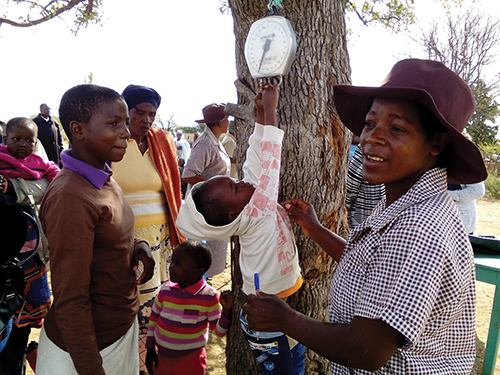

PEOPLE in Matabeleland North are set to benefit from mobile clinics introduced by Population Services Zimbabwe (PSZ) which will save them from walking long distances to access reproductive health care.
BY VENERANDA LANGA
In areas like Egondeni in Ntabazinduna, the PSZ mobile clinics have been reaching out to people in the form of pitched tents; complete with medical equipment used for family planning services as well basic paediatric health care like immunisation and weighing babies.
PSZ director for grants and external relations Pester Siraha told MPs from the Parliamentary Portfolio Committee on Health and Child Care who were on a visit of PSZ clinics in the Midlands and Matabeleland that the mobile outreach clinics were administered for free and patients given drugs for various ailments, contraceptives with some getting treated for sexually transmitted infections.
“The PSZ outreach clinics are supported by USAid and move to six different districts in Matabeleland North every month as they are in the form of pitched tents,”Siraha said.
“If resources are available, the mobile clinics visit a district once in three months in order to assist villagers with health needs as they have to travel distances ranging from 5km to 75km to access basic health services.”
According to the sister-in-charge of the Matabeleland North mobile clinic, some of the districts covered included Nkayi, Umguza, Insiza and Tsholotsho.
Siraha said the stance that PSZ would take in the future for remote areas in the country would be to pitch tents using the mobile clinic system to assist rural folk who rarely accessed medical care, including reproductive health services.
- Chamisa under fire over US$120K donation
- Mavhunga puts DeMbare into Chibuku quarterfinals
- Pension funds bet on Cabora Bassa oilfields
- Councils defy govt fire tender directive
Keep Reading
The mobile clinics are being run by professional nurses who are assisted by village health workers.
Chairperson of the committee Ruth Labode suggested they should follow the European set-up of mobile clinics were medical staff were provided with boarding and bathroom facilities in the pitched tents so that they were able to treat patients for several days at one place for the benefit of villagers.
Labode said there was also need for PSZ to assist the government to incentivise village health workers who assisted at the mobile clinics because they were getting a paltry $42 per year when other village health workers in places like Gokwe were paid $50 per month.
Siraha said village health workers were paid by the government and not PSZ, adding they only assisted them with equipment to use when carrying out their duties, as well as training to administer basic health care.
Labode said the committee would investigate why payment for the village health workers at different provinces was inconsistent, adding there were suspicions that funds supposed to assist village health workers could have been abused.
Flora Mpofu, a village health worker for Fingo Ward three in Ntabazinduna told NewsDay that they walked distances of 15km per day helping patients, weighing babies and recording medical history of patients, conducting blood pressure checks, and other duties.
She said they worked four days in a week, adding she hoped the government would increase their stipends to at least $42 per month.
People who showed up at the PSZ mobile clinic were given reproductive health counselling such as condom use and family planning advice.










